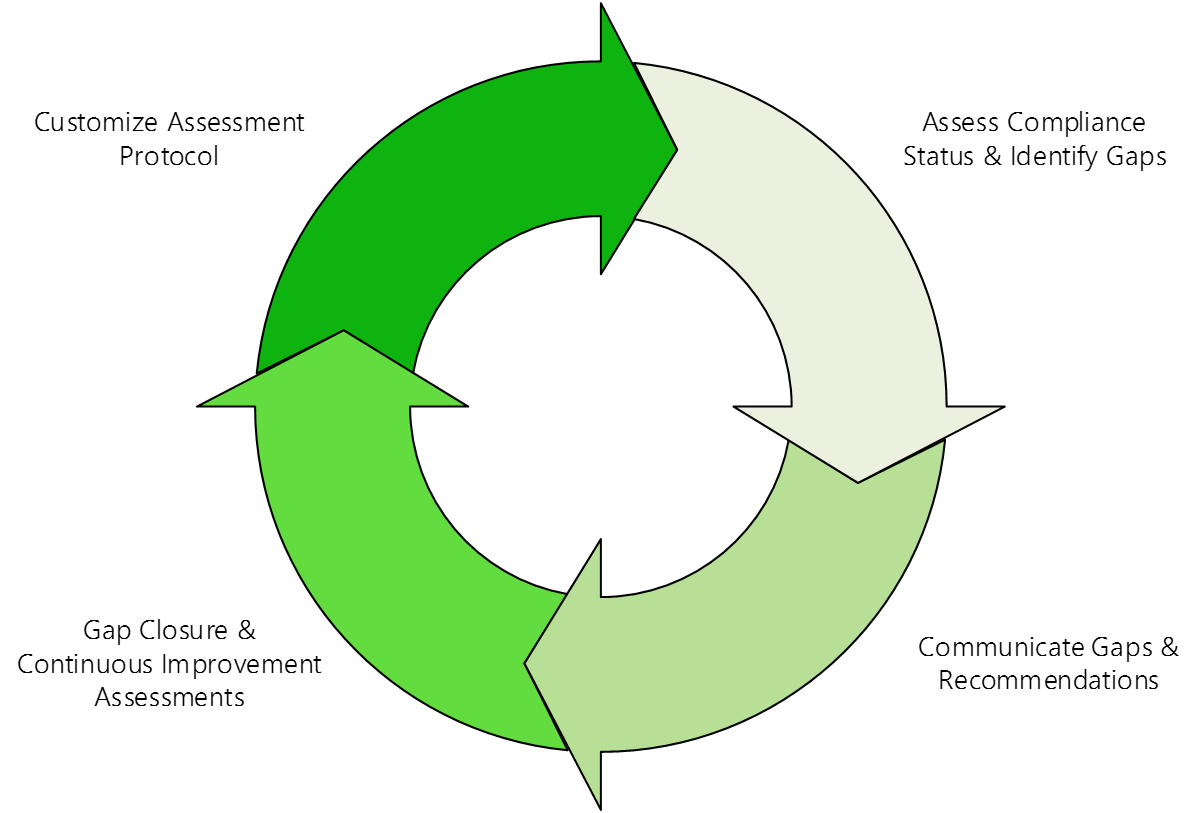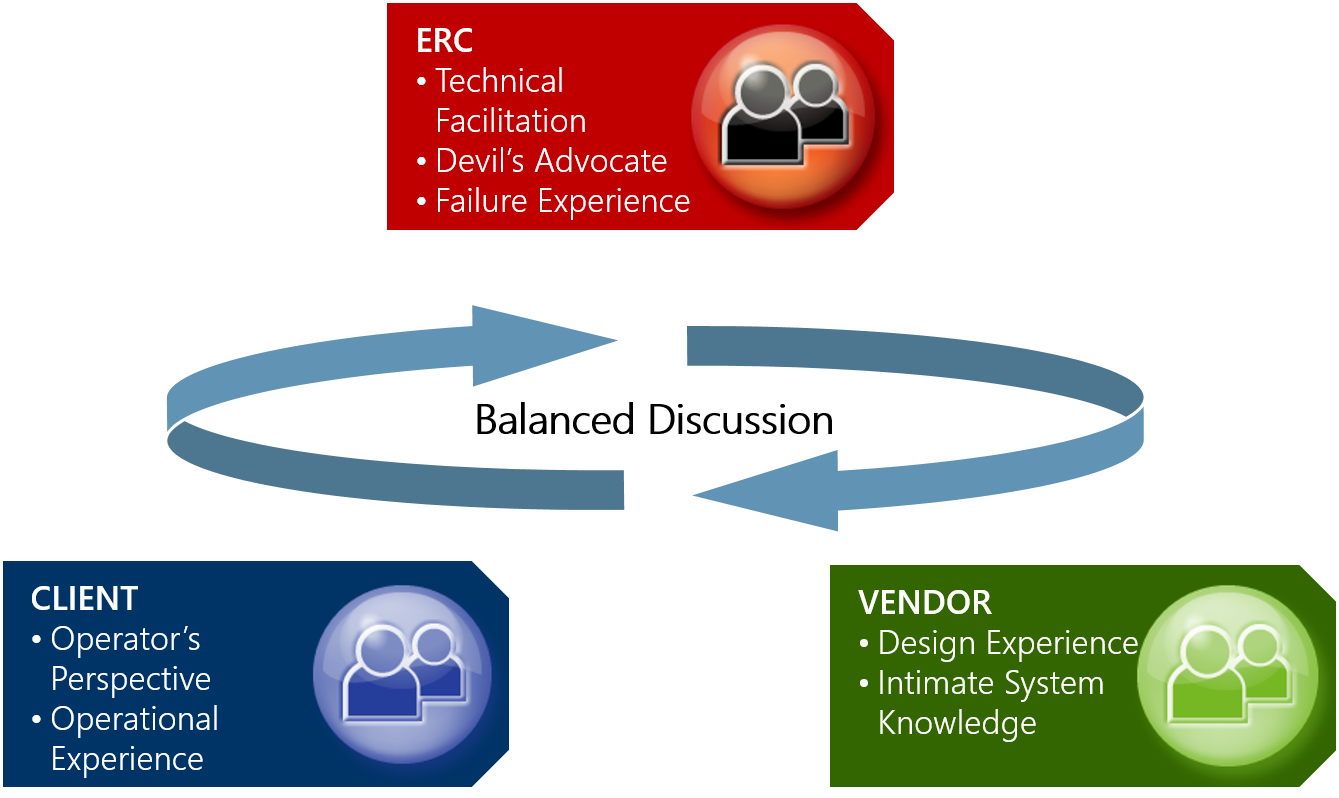Upstream Risk Management
COMPLIANCE SUPPORT
In alignment with existing government and industry regulations, and as new and more stringent standards are approved, Energy Risk Consulting can provide support to assess compliance status with requirements, and to develop and implement strategies to close identified gaps.
ERC can support organizations to achieve comprehensive compliance with:
Government Regulations and Requirements
Industry Standards and Requirements (API, ISO, etc.)
Internal Company Policies and Governance
Process
Comprehensive and Detailed: Our assessment process is directly aligned with the applicable regulations and standards and provides for a thorough evaluation and understanding of compliance status.
Organized and Repeatable: A structured project execution approach is applied for each assessment to ensure clear alignment on expectations and complete documentation of the process and results.
Collaborative: ERC works closely and collaboratively with clients to define assessment needs and customize the implementation approach to achieve customer objectives.

Risk Analysis
With global experience conducting risk analyses on an extensive number of technical systems for a variety of customers, Energy Risk Consulting is committed to supporting clients in minimizing risks to safety, the environment, and operations. Our ability to utilize a wide variety of risk analysis methodologies (including HAZID, HAZOP, LOPA, FMECA, etc.), coupled with our streamlined work process, allows us to develop unique solutions for each customer which maximize value while minimizing cost and session duration.
Benefits
Identification of critical risks with potential for safety, environmental, and business impacts
Increased understanding of systems and interfaces via system overview discussions and detailed analyses
Development of recommendations (including SIT) to mitigate risks, increase system reliability and safety, and decrease downtime
System Experience
ERC and its employees have conducted numerous technical risk assessments on a variety of systems including:
Active Heave Drawworks (AHD)
Anti-Collision
Auxiliary Winch
Bilge and Ballast
BOP Control
BOP Handling
Braking Resistors
Bulk System
Choke & Kill Manifold
Charge Pumps
Control System Logic
Cooling Water System
Cyberbase
Diverter
Driller’s Control Cabin
Drilling Controls Network
Drilling Drives
Drill Floor Integration
Drilling Power Limiting Systems (DPLS)
Emergency Evacuation
Emergency STOP (drill floor machines)
Fire and Gas Detection
Fire Fighting
HP Mud Pumps
HP Cement Pumps
Iron Roughneck
Knuckle Boom Cranes
Lube Oil Cooling
Main Pumps
Mooring System
Mud Control System
Mud Pump System
Mud Mixing and Solid Controls
Pipe Handling Catwalk Machine
Pipe Handling Crane (9 ton)
Pipe Handling
Pipe Racking
Power Management
Rig Cooling
Ring Line HPU
Riser Handling
Riser Tensioning
Thrusters
Top Drive
Variable Speed Drive
Variable Frequency Drives (Drilling)
Water Tight Integrity
Well Control
Methodology
Energy Risk Consulting is focused on maximizing value and productivity during hazards analysis sessions/meetings. The standard approach for conducting these meetings is to begin each review with blank documentation and utilize a brainstorming approach coupled with the selected methodology (HAZID, HAZOP, FMEA/FMECA, etc.) to identify scenarios and populate the associated worksheets. Although our experienced staff are fully capable of using this approach, in the interest of maximizing the value of the review sessions where a number of participants from the customer (project, engineering, and operations staff) and vendor(s) may be involved, alternative strategies may be used.

With a risk management staff consisting of experienced engineers, Energy Risk Consulting is capable of reviewing technical system documentation (Electrical Diagrams, Hydraulic System Diagrams, P&IDs, etc.) to develop preliminary system failure scenarios (failure causes and modes only – consequences and risk ranking are always recommended to be completed during sessions). In addition, our recommended approach involves scheduling a brief preliminary meeting, or preparation session, with a small group of engineering staff knowledgeable of the system design. The intent of this preparation session is to:
Verify the scope of the suggested study nodes
Verify the accuracy of preliminary system failure scenarios
Establish and build relationships with the meeting participants which increases productivity during the full hazards analysis sessions
Using this work process to prepare for and execute hazards analysis meetings increases session productivity and value in the following ways:
Minimizes session duration – preliminary preparation by Energy Risk Consulting engineering professionals coupled with the preparation session with the small group of design engineers allows for the majority of failure scenarios to be identified and pre-populated into worksheets prior to starting the formal hazards analysis meetings. This preparation work, therefore, eliminates the time that would have been spent developing and documenting these scenarios during a formal session with the full group of participants, significantly reducing both the session duration and cost.
Allows participants to focus creative brainstorming on identifying less obvious system failures – an additional benefit of preparing failure scenarios and documentation prior to the hazards analysis sessions is that participants are then able to focus discussions on the consequences and risks of the identified failures, and on creative brainstorming of additional failure scenarios that are less obvious, such as those that are based on operational experience.
Session Approach

